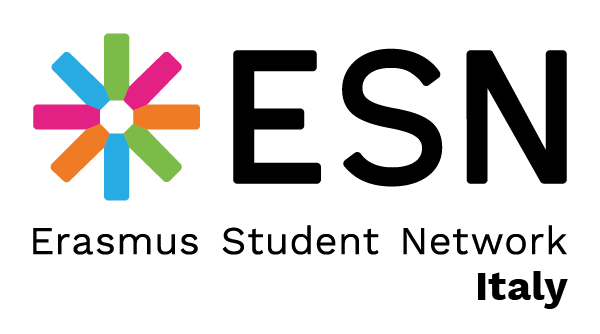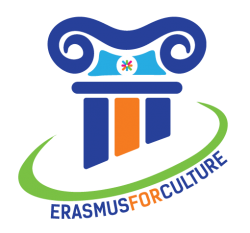What is Erasmus For Culture?
The European Commission designated 2018 as the European Year of Cultural Heritage with the aim of highlighting the role of European cultural heritage in promoting the awareness of a shared history and identity. The European Year of Cultural Heritage mainly focuses on young people, who will safeguard our cultural heritage for future generations, and it points out its educational value and contribution to a sustainable economic and social development. The European Year of Cultural Heritage promotes intelligent ways of preserving, managing and re-use the European heritage.
ESN Italia could not avoid moving at the same pace, designing a new project that falls entirely within the values of our association: love for Europe as an area of peace and cultural exchange. Erasmus for Culture, name given to the project - on the false line of Europe For Culture, the name of the European Union campaign - its main purpose is to make Erasmus students aware of the importance of European history and values and to strengthen the sense of European identity through ad hoc activities, in favor of the promotion of the cultural heritage of the Italian territory and of our cities/places of belonging.
It is an opportunity for the sections of ESN Italy to highlight the cultural beauties of the local reality by offering to their international students larger and more variegated opportunities.
The European Year of Cultural Heritage will then offer to the Italian sections and to the international students multiple opportunities to better understand the present through a constant journey into the past.
Moreover, ESN International has been designated by the European Commission to fully follow the communicative aspects of the promotion of the European Year of Cultural Heritage towards young people, therefore the implementation of this project fits entirely into the activities of our international network.
Local planned activities
By cultural heritage we mean the resources inherited from the past, in every form and aspect, including tangible ones (buildings, monuments, books, archaeological sites, etc.) and intangibles (practices, languages, oral tradition, digital art, animation, video and recordings, and so on).
The activities will promote awareness of history and common values, strengthen the sense of belonging to Europe, show ways to safeguard, enhance, but also reuse and promote the European cultural heritage as a shared resource.
The activities that could be organized by the sections of ESN Italy fall into the following categories:
1. Visiting and finding buildings, monuments, artefacts, works of art, historical cities, archaeological sites.
the simple visit to a museum or an archaeological site or a work of art, and also those projects of a wider scope are recognized as cultural activities. For example:
- museums and sites tour, taking photographs, interviewing guides, the archaeological site / museum staff or to interview the students themselves, and to make a video of the activity. Some museums are huge and contain thousands of works, perhaps too many to be assimilated and enhanced during a single visit.
- asking the Erasmus for suggestions to visit other sites, museums, historical cities.
- activities promoted by the Ministry of Cultural Activities and Heritage and Tourism: #DomenicaAlMuseo. Every first Sunday of the month it’s possible to go for free to the museums, archaeological sites and monuments throughout Italy to spend with Erasmus students a day dedicated to the discovery of the local and national cultural heritage.
2. Representations of linguistic and oral traditions, the performing arts, social practices and traditional crafts.
These are activities carried out on-site or in other cities. For instance:
- Discovery Italy - days close to nature and local traditions. Visit to the agricultural institutes of the various Italian cities for demonstration, production and tasting of typical products. Discovering customs and traditions of one's own or of other Italian cities involving the ESN sections present on that particular territory. Visit to craft workshops - some types of crafts exhibited in museums (e.g. ceramics) are still manufactured by people who have received a knowledge passed down from generation to generation for decades and even centuries. Visiting artisan workshops allows students to get in touch and see for themselves how the same traditional arts are exhibited in museums. In this way they can better understand the link that exists between their identity, their heritage (including World Heritage) and local craftsmanship.
- Interpretive reading workshops - reading aloud poems and writings of European literature. it could be possible also to provide bilingual educational activities.
- Italian kitchen workshops - Demonstration lessons to relax and listen to the storytelling about the prepared dishes, practical lessons to create with your own hands the menu dishes. This year, moreover, pizza has been recognized as a UNESCO cultural heritage. The culinary know-how linked to the production of pizza, which includes gestures, songs, visual expressions, local jargon, ability to handle pizza dough, performing and sharing is an indisputable cultural heritage. The pizza chefs and their guests get involved in a social ritual, whose counter and the oven act as a "stage" during the pizza production process.
- Debates - discuss and reflect on the meaning and value of heritage, on the techniques necessary to manage cultural heritage, the advantages and threats hidden behind mass tourism, etc. Local associations or bodies that deal with art and culture could be involved.
- Erasmus and theater - it’s a unique and extraordinary event that fuses culture and integration, where international and Erasmus students get involved to play in their own language or in a foreign language, work with the use of scenography and screenplay, study a specific text with proven actors , deepening various topics with professors and operators in this sector. It symbolically refers to the presence of Erasmus at the theater but can also be played in open and less formal places. This event actively involves students and creates environments in which tolerance, enthusiasm and proactivity become indispensable for this collaboration. Different cultures come together, communicate and work together to produce a unique result. What comes out it’s certainly maturation and a memory that will remain in the heart of Erasmus for life
3. Cultural activities concerning nature - landscapes, flora and fauna.
Nature and culture are clearly complementary - the cultural identity of different peoples has been shaped by their environment and the beauty of the prettiest monuments, buildings and sites is generally due to their natural framework. Moreover, some of the most spectacular natural sites show the secular marking of human activity or have a spiritual, cultural or artistic meaning.
Among these there are:
- Educational visits to farms, agritourisms, vineyards, etc. where “active” educational activities are carried out. The farm continues being a full-fledged productive reality, education is only integrated within normal activities. The aim is to spread the knowledge of the activities carried out there, involving Erasmus students in the realisation of a typical “product” or in other farming activities, such as harvesting fruits and vegetables.
- Visits to national parks or natural sites for educational purposes.
4. Digital cultural activities. There are some resources that are digital (such as digital art or animation) or that have been digitalized as a way to preserve them (included texts, images, videos, registrations).
It involves on the spot activities, without organizing trips or visits. For example:
- Cineforum - series of thematic meetings centered on culture during which there is a debate after a film projection. Ask for suggestions to Erasmus students themselves on the contents.
Planned activities on the national level
Italy proposed many initiatives for promoting culture in 2018 and the Agenzia Nazionale Erasmus+ Indire (National Agency Erasmus+ Indire) asked for the participation of ESN Italy.
ESN Italy’s Directive will make an effort - where possible - in participating to the events that will be organized supporting the Agency’s work and in informing all the Sections about the initiatives present in their territory.
Finally, to conclude this series of events, ESN Italy will conclude with the organization of the Incontro Culturale Erasmus (Erasmus Cultural Meeting) whose main theme this year will be cultural heritage. The two primary meetings will be the opening Ceremony and the Flag Parade, which will probably finish with a conclusive celebration of European culture and of Italian and European cultural heritage.


Follow us